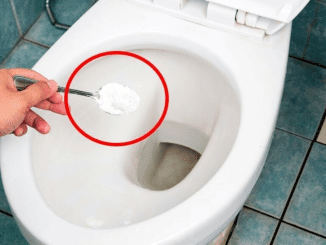Keeping your blood sugar in check isn’t just for people with diabetes. Even if you’ve never been diagnosed, your body could be sending you warning signs that something’s off—and you might not even realize it. High blood sugar, or hyperglycemia, can sneak up on you. Here are 12 quiet but important signals your body might be giving you, plus what you can do about it.
You’re Always Thirsty, No Matter What

Feeling thirsty all the time? That could be more than just dehydration—it might be your body’s way of dealing with extra sugar in your bloodstream. When your kidneys are overwhelmed trying to flush out the glucose, they start pulling more water from your body, leaving you dry and constantly reaching for your water bottle.
Frequent Bathroom Trips
Another red flag? Constantly needing to pee, especially at night. That sugar overload your kidneys are trying to handle? It turns into excess urine. Even if you’re not drinking more than usual, your bladder fills up fast—and that’s your body working overtime to get rid of the sugar.
You’re Hungrier Than Usual
Oddly enough, high blood sugar can make you hungrier—not because you need more food, but because your cells aren’t getting the glucose they need. When glucose isn’t moving into your cells properly, your body thinks it’s starving. So it sends you hunger signals even after a big meal.
Low Energy and Constant Fatigue
Even though your body has plenty of sugar, it can’t use it correctly when your insulin isn’t working as it should. That means your energy tanks. You might feel sluggish, mentally foggy, or just exhausted for no clear reason. This type of fatigue doesn’t go away with a good night’s sleep—it’s deeper and more persistent.
Video : 10 Alarming Signs Your Blood Sugar Is Too High
Blurry Vision That Comes and Goes
If your eyesight seems off lately, especially after eating, high blood sugar could be to blame. Too much glucose can cause the lenses in your eyes to swell, messing with your focus. It may not be permanent, but it’s definitely a warning that your sugar levels need attention.
Wounds Take Forever to Heal
Scratches and cuts that just won’t go away? That’s not normal. High blood sugar weakens your immune system and slows blood flow, especially in your extremities. If your body is slow to heal, it might be struggling behind the scenes.
You Keep Getting Sick
If you seem to get infections more often than other people—like UTIs, skin issues, or gum disease—there might be a sugar connection. High glucose can suppress your immune defenses, making you more vulnerable to bacteria and viruses that your body would normally fight off easily.
Tingling or Numbness in Hands or Feet
Feeling pins and needles or numbness in your fingers and toes could be an early sign of nerve damage. This condition, known as diabetic neuropathy, happens when high blood sugar starts breaking down nerve function. It usually starts slowly but can get worse over time if left unchecked.

Irritability and Mood Changes
Mood swings or sudden feelings of irritability might not be “just stress.” Sugar impacts your brain’s chemistry too. When insulin and glucose levels fluctuate, so can your mood. If you feel more anxious, sad, or snappy than usual, it might be connected to what’s happening in your bloodstream.
Dry Skin and Cottonmouth
Dry, flaky skin or a dry mouth that water just doesn’t fix could be due to dehydration from high blood sugar. When your body can’t retain moisture, it shows on your skin and lips. You might even notice your tongue feels rough or that you’re constantly licking your lips.
Strange-Smelling Breath
If your breath starts smelling fruity or like nail polish remover, that’s a sign of high ketone levels in your blood. Your body produces ketones when it burns fat for energy instead of using glucose. This usually means your cells aren’t getting the sugar they need, which can become dangerous quickly.
Swollen Feet or Ankles
Swelling in your legs, feet, or ankles might be your body’s way of telling you something’s off with your circulation. High blood sugar can cause fluid to build up in tissues, especially in your lower body. If your shoes are suddenly tighter, take note.
What Happens If You Ignore These Signs?
Leaving high blood sugar untreated isn’t just uncomfortable—it can be dangerous. Over time, it damages your nerves, organs, and blood vessels. You’re at a much higher risk for type 2 diabetes, heart disease, kidney failure, vision loss, and more. That’s why catching these subtle symptoms early is key.
Video : Best Meals To Lower Blood Sugar Level
Simple Ways to Bring Your Blood Sugar Down
Eat Balanced Meals
Opt for meals that combine protein, fiber, and healthy fats. Avoid processed snacks and sugary drinks. Choose complex carbs like brown rice and whole grains over white bread and pasta.
Move Every Day
Exercise helps your body use insulin more efficiently. Even a daily walk can help lower blood sugar. Find something you enjoy so it becomes part of your routine.
Drink Plenty of Water
Water helps your kidneys flush out extra sugar. Aim for 8 glasses a day—more if you’re sweating or exercising heavily.
Track Your Levels
Using a glucometer can help you understand how your body reacts to food and activity. Regular tracking lets you spot trends before they become problems.
The Bottom Line
Your body speaks—don’t ignore the whispers. These small changes might seem harmless, but they could be early clues that your blood sugar is too high. If you notice one or more of these signs, talk to your doctor and make some small lifestyle tweaks. You don’t need to overhaul your life overnight. But small steps today can help you stay healthy tomorrow.
Let me know if you’d like a graphic version, social media caption, or newsletter teaser to go with this content!


